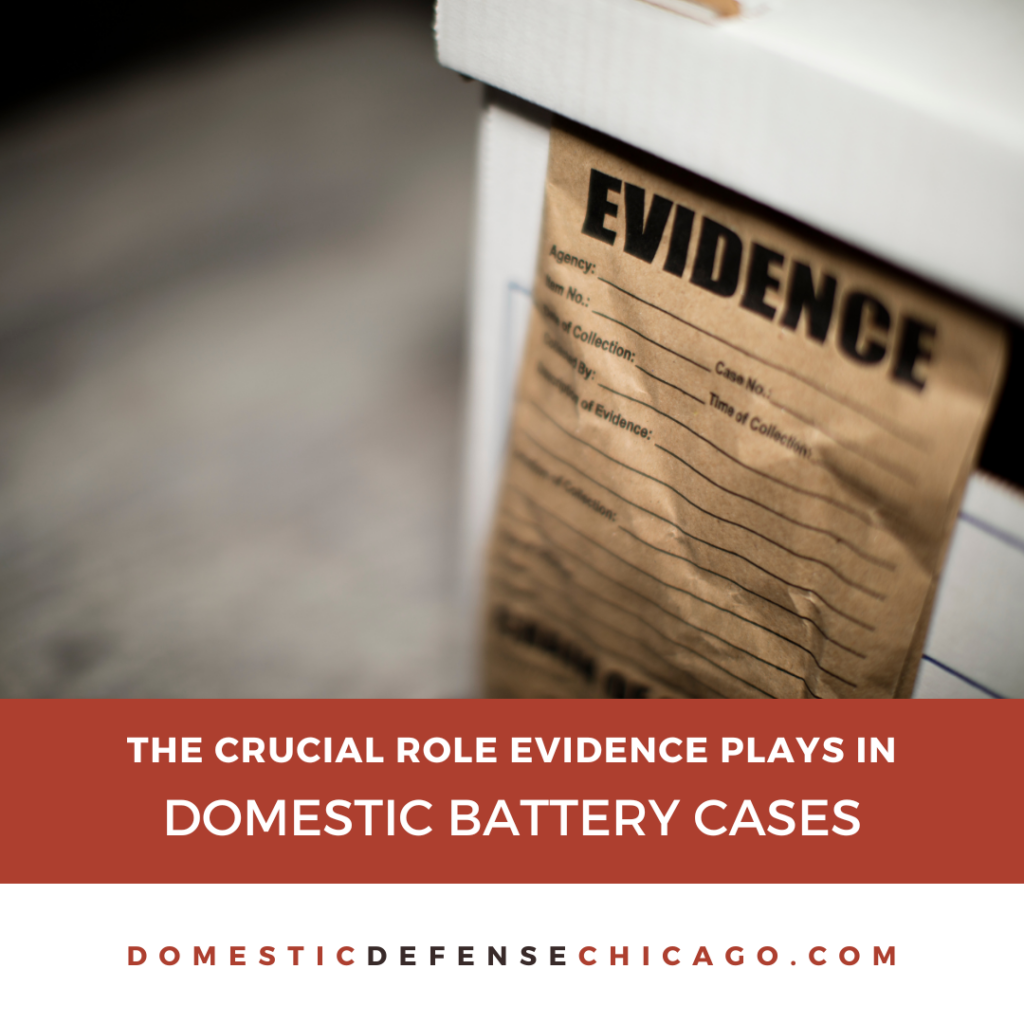When facing a domestic battery charge, the evidence can significantly influence the case’s outcome. Understanding its role is key to building a strong defense.
The Crucial Role Evidence Plays in Domestic Battery Cases
This guide focuses on the importance of evidence in domestic battery cases and how it can impact your defense. It explains:
- Types of evidence in domestic battery cases
- How evidence can support your defense
- The process of collecting and presenting evidence
- Challenges in dealing with evidence
- The importance of legal assistance
Here’s a closer look at each.
Types of Evidence in Domestic Battery Cases
Evidence in domestic battery cases can include physical proof, like photos or medical reports, and digital evidence, such as texts or emails. Witness statements also play a significant role. Each piece of evidence can help paint a clearer picture of what happened.
Related: Domestic battery defense law
How Evidence Can Support Your Defense
Good evidence can make or break your defense. It can show what really happened and might even prove your innocence. For example, messages or photos can show the context of the situation or contradict the accuser’s story.
The Process of Collecting and Presenting Evidence
Collecting evidence involves finding and keeping anything that could help your case. This means saving messages, finding people who saw what happened, or getting copies of medical reports or police records. Presenting this evidence correctly in court is also very important.
Challenges in Dealing with Evidence
Handling evidence can be tricky. Some evidence might be hard to find, or there might be too much to go through. Sometimes, the evidence can be unclear or open to different interpretations. A skilled lawyer will know how to deal with evidence that helps you and evidence that seems to help the prosecution with its case.
Related: Is domestic violence a felony or misdemeanor in Illinois?
The Importance of Legal Assistance
A lawyer’s help is vital in these cases. They know how to find and use evidence effectively. They can also challenge evidence from the other side that might not be reliable or relevant.
FAQ About Evidence in Domestic Battery Cases
Here are some common questions about evidence in these cases.
What Kind of Evidence is Most Important in Domestic Battery Cases?
The most important evidence varies from case to case, but it often includes anything that shows what happened during the incident, like photos, messages, or witness accounts.
How Can I Collect Evidence for My Case?
Start by saving any messages or emails related to the case. Also, think about who might have seen what happened or if there are any photos or videos. A lawyer can help you figure out what else you might need and how to get it.
Can Social Media Posts Be Used as Evidence?
Yes, social media posts can be used as evidence. They can show someone’s state of mind or actions around the time of an incident.
Related: Common mistakes to avoid when you’re facing domestic battery charges
What If There’s Not Much Evidence in My Case?
Even if there’s not much evidence, a lawyer can help. They can challenge the accuser’s story and show why the evidence against you might not be strong.
How Does a Lawyer Help With Evidence?
A lawyer helps by finding evidence, deciding what’s most important, and showing it in the best way in court. They also challenge any weak or unfair evidence from the other side.
Evidence plays a key role in domestic battery cases. It can show what really happened and help your lawyer defend you against these criminal charges. Having a lawyer to manage evidence and build a strong defense can be very beneficial.
Do You Need to Talk to an Attorney About Domestic Battery Defense?
If you need to talk to a domestic battery defense attorney in Illinois, we’re here to help. Call us at 847-920-4540 now – we’ll be happy to give you a free consultation and talk to you about your options.







Leave A Comment
You must be logged in to post a comment.